Poll: Americans divided on admitting refugees
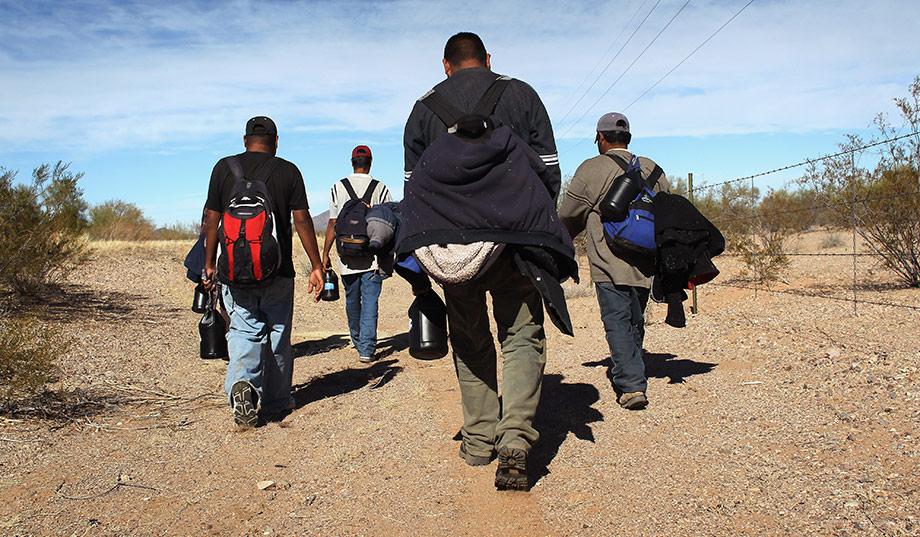
Where immigrants are concerned, James Wright is OK with people who are here legally, as well as illegally – if they haven’t committed crimes. But turn the talk specifically to the risks and benefits of admitting refugees to the U.S., and the New Jersey resident gives a fraught sigh. “It’s hard not to be conflicted,” said Wright, 26, an independent who supports President Donald Trump’s proposed travel ban on certain foreigners. “By no means do I want to be cruel and keep people out who need a safe place. But we have to have a better system of thoroughly finding out who they are.” Wright is part of a group of Americans a new survey suggests are making distinctions between legal immigrants who choose to be here and refugees – who are legal immigrants, too – fleeing persecution in their home countries. A new poll by The Associated Press-NORC Center for Public Affairs Research reflects that divide, with two-thirds of the respondents saying the benefits of legal immigration generally outweigh the risks. But just over half – 52 percent – say refugees pose a great enough risk to further limit their entry into the United States. Interviews with some of the poll’s participants suggest the distinction may be one of perception in an age of religious and politically inspired violence and 4.8 million refugees fleeing war-scarred Syria. “Sometimes the vetting might not be quality,” said Randall Bagwell, 33, a Republican from of San Antonio, Texas, the state second to California in settling refugees between Oct. 1 and Jan. 31, according to the State Department. “Nobody can do quality control when they’re just reacting immediately.” President Donald Trump has long linked tougher immigration limits to a safer country, and on Monday signed a new travel ban that, in part, will suspend refugee travel to the U.S. for four months except for those already on their way to the United States. The new order, which takes effect on March 16, will impose a 90-day ban on entry to the United States for people from Sudan, Syria, Iran, Libya, Somalia and Yemen – all Muslim-majority nations – who are seeking new visas. It was Trump’s second effort at a travel ban. The first was blocked by the courts. Also reflecting his hard line, Trump last week announced to Congress a new office to aid Americans and their families who are victims of immigrant violence. That’s despite years of studies that have shown that immigrants are less likely to commit crimes than U.S.-born people. Much of Trump’s candidacy and young presidency have been powered by the idea that he will protect Americans from “bad dudes” who want to come here, issuing a mix of tough, if vague, policy – from “extreme vetting” to the travel ban, a border wall with Mexico and more. Americans report conflicting feelings about immigrants just over six weeks into his presidency, the poll suggests. On the one hand, Americans see refugees as a risk apart from other legal immigrants, with a third of Democrats and 8 in 10 Republicans saying the risks are great enough to place more limits on refugees admitted to the U.S. Despite those fears, Americans still see legal immigration generally as a boon, the poll shows. More than 6 in 10 say a major benefit of legal immigration is that it enhances the reputation of the United States as a land of opportunity. The good and bad of immigration has long been a painful and intensifying national debate. Trump has shown some flexibility – or inconsistency, depending on one’s viewpoint – on his approach. For example, Iraq is no longer on the list of countries whose people are banned. Officials from the Pentagon and State Department had urged the White House to reconsider given Iraq’s key role in fighting the Islamic State group. Also, the new order does not subject Syrians to an indefinite travel ban, as did the original. Trump also has minimized talk of deporting all of the estimated 11 million people in the U.S. illegally and suggested that he could be open to comprehensive immigration reform. That sparked both interest and skepticism on Capitol Hill, where a solution has stymied Congress for years. But Trump’s warnings about refugees in particular apparently have stuck in the American consciousness, according to the poll. Refugees entering the U.S. undergo rigorous background checks, including a search of government databases that list people suspected of having ties to terrorist groups. Processing of refugees can take up to two years – and usually longer for those coming from Syria. After a year in the U.S., refugees are required to check in and obtain green cards. But U.S. officials have acknowledged that information on people coming from Syria, in particular, may be limited. Mandy Gibson, 37, sees the benefits of admitting legal immigrants – but isn’t so sure about refugees. “Maybe it’s the media. They are making refugees sound like they aren’t legal immigrants and I don’t necessarily understand, but they are different to me,” said Gibson, who works in a Greensboro, North Carolina, grocery store. Either way, she said, “anybody who is coming from countries that have ISIS really should have a very thorough background check.” — The AP-NORC poll of 1,004 adults was conducted Feb. 16-20, using a sample drawn from NORC’s probability-based AmeriSpeak panel, which is designed to be representative of the U.S. population. The margin of sampling error for all respondents is plus or minus 3.9 percentage points. Republished with permission of The Associated Press.
Daniel Sutter: Can we end illegal immigration?
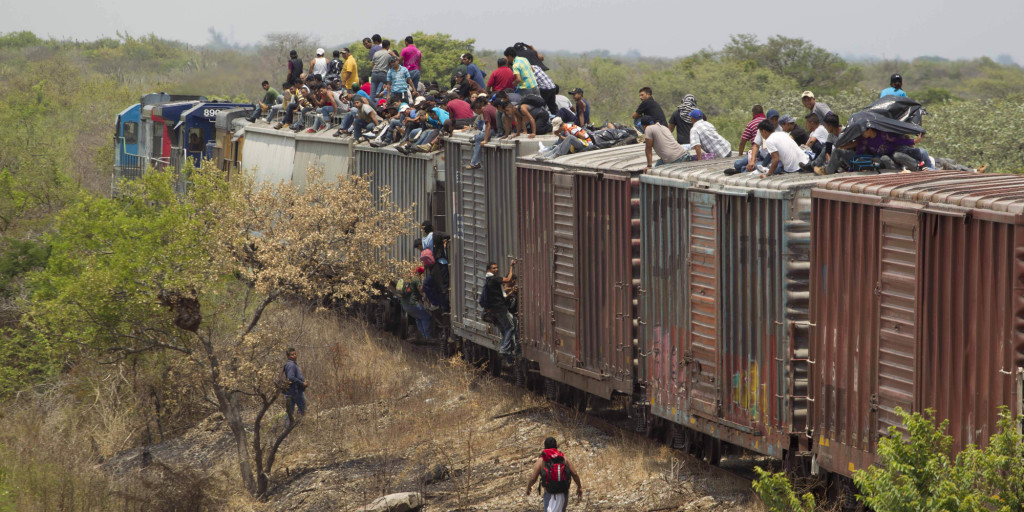
Our immigration policy prior to the election of President Donald Trump could be fairly described as strict limits on legal immigration combined with toleration of large-scale illegal immigration. Tolerated illegal immigration as policy has a number of weaknesses. I think that we should put immigration on a legal footing. We could end tolerated illegal immigration by ratcheting up enforcement of current laws, which is what President Trump promised on the campaign trail and what his efforts to complete the border wall with Mexico implies. Or we could significantly increase legal immigration. I think either option may now be preferable to hypocrisy as policy. Let’s consider the current limits on legal immigration. The wait for visas under the family reunification program can be a decade or more, while the H-1B and lottery visa programs have far more applicants than available slots (13.6 million lottery applications for 50,000 visas in 2008). Generally only graduate or professional degree holders can secure long-term work visas. Illegal immigration is also far from easy. Almost 250,000 people were deported in 2016, and over 500,000 were apprehended trying to enter illegally. The difficulty of legal or illegal entry allows human traffickers to charge huge sums for assistance: $4,000 to cross from Mexico, and $60,000 for entry from India. And this hefty payment does not guarantee entry. Over the past decade, over 3,700 people have died crossing from Mexico. Large-scale illegal immigration entails several costs. For starters, illegal immigrants are vulnerable to abuse and exploitation because they cannot turn to law enforcement for protection once here. Reports of sex trafficking and sweatshops in the U.S. frequently involve illegal immigrants. Illegality creates space for truly inhumane treatment. Persons here illegally can impose avoidable costs on Americans. For example, many illegal immigrants drive without licenses and insurance, contributing to 12% of drivers nationally who are uninsured. Billions of dollars of accident costs each year then get passed on to insured drivers. More ominously, we cannot perform background checks on illegal immigrants. While the overwhelming majority of legal and illegal immigrants come here to work, we can and should protect against entry by criminals and terrorists. We essentially outsource background checks, which should be done by the Department of Homeland Security, to the human traffickers. Perhaps most significantly, tolerated illegal immigration causes a loss of respect for the law. The law should assist people in leading productive lives. Order in society relies on people largely voluntarily following the rules regulating our behavior, like driving and paying taxes. We follow the rules because we understand that life is better when everyone does so. Furthermore, our policy basically forces Americans who just want to run businesses to break the law. Many firms must hire undocumented workers to remain cost competitive because few Americans are willing to do jobs in agriculture, food service, and construction. And some entrepreneurs get prosecuted for hiring illegal workers, which the system essentially forced them to do. Should we end illegal immigration by more enforcement or liberalizing legal immigration? One’s answer depends on one’s personal values. Each option entails costs and consequences. As the status quo demonstrates, enforcement has limits. Immigrants come here illegally because wages are much higher than in their home countries. Consequently tougher enforcement will just increase the price of illegal crossings. The cost of totally securing the border may be prohibitive. Furthermore, tougher enforcement will leave us with fewer immigrants willing to do hundreds of thousands of jobs, which might go unfilled. A lack of labor will increase prices for many of the things that we buy. And it could increase imports: we might have to import grapefruit and tomatoes from countries where labor is available. Ultimately I think increasing legal immigration will increase respect for the law and improve border security. President Trump should make sure that the border wall has a big gate to welcome people wanting to come here to work. This will put most of the human traffickers on the border out of business and allow us to focus on people still trying to enter illegally. ••• Daniel Sutter is the Charles G. Koch Professor of Economics with the Manuel H. Johnson Center for Political Economy at Troy University and host of Econversations on TrojanVision. The opinions expressed in this column are the author’s and do not necessarily reflect the views of Troy University.
George W. Bush on Donald Trump and Russia: ‘We all need answers’
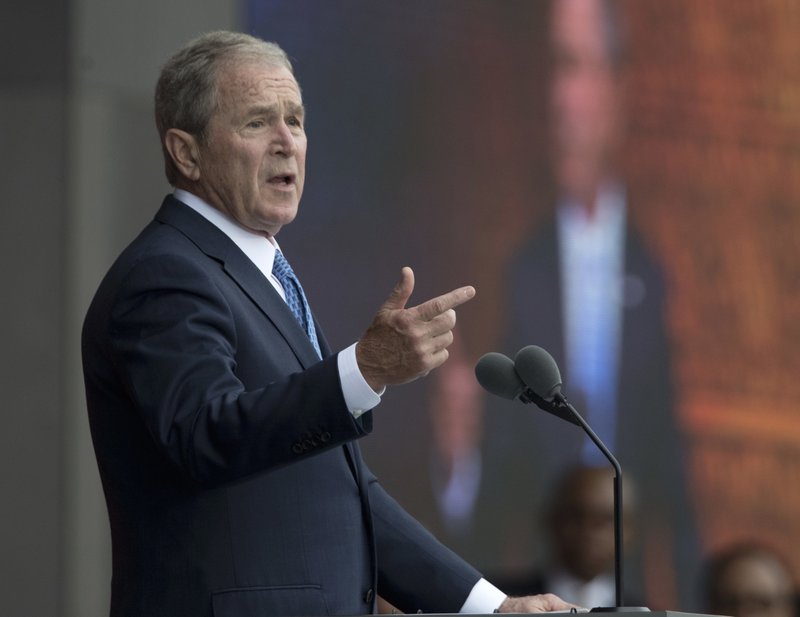
Former President George W. Bush said Monday “we all need answers” on the extent of contact between President Donald Trump‘s team and the Russian government, and didn’t rule out the idea that a special prosecutor could be necessary to lead an investigation. The Republican also defended the media’s role in keeping world leaders in check, noting that “power can be addictive,” and warned against immigration policies that could alienate Muslims. “I am for an immigration policy that’s welcoming and upholds the law,” Bush told NBC’s “Today” show. Bush’s comments came after a prominent Republican in Congress, Rep. Darrell Issa of California, called for a special prosecutor to investigate whether Russia interfered in the 2016 presidential election and was in touch with Trump’s top advisers during the campaign. Bush said he would trust Senate Intelligence panel Chairman Richard Burr to decide if a special prosecutor is necessary. But, Bush added, “I think we all need answers … I’m not sure the right avenue to take. I am sure, though, that that question needs to be answered.” The former president, who is promoting a book of his paintings of wounded veterans, also took issue with Trump’s characterization of the media as an “enemy of the people.” Bush said the U.S. won’t be able to convince authoritarian governments, including Russia, to open up their governments to media scrutiny if U.S. leaders try to discredit their own press. “We need an independent media to hold people like me to account,” Bush said. “Power can be very addictive, and it can be corrosive. And it’s important for the media to call to account people who abuse their power, whether it be here or elsewhere.” On the issue of immigration and Trump’s recent attempt to ban travelers from seven Muslim-majority nations, Bush warned that if the U.S. freezes out other countries and turns inward, that would only make it more difficult to fight the Islamic State group and other foreign extremists. “I think it’s very hard to fight the war on terrorism if we’re in retreat,” he said. Republished with permission of The Associated Press.
Jeff Sessions: U.S. to continue use of privately run prisons
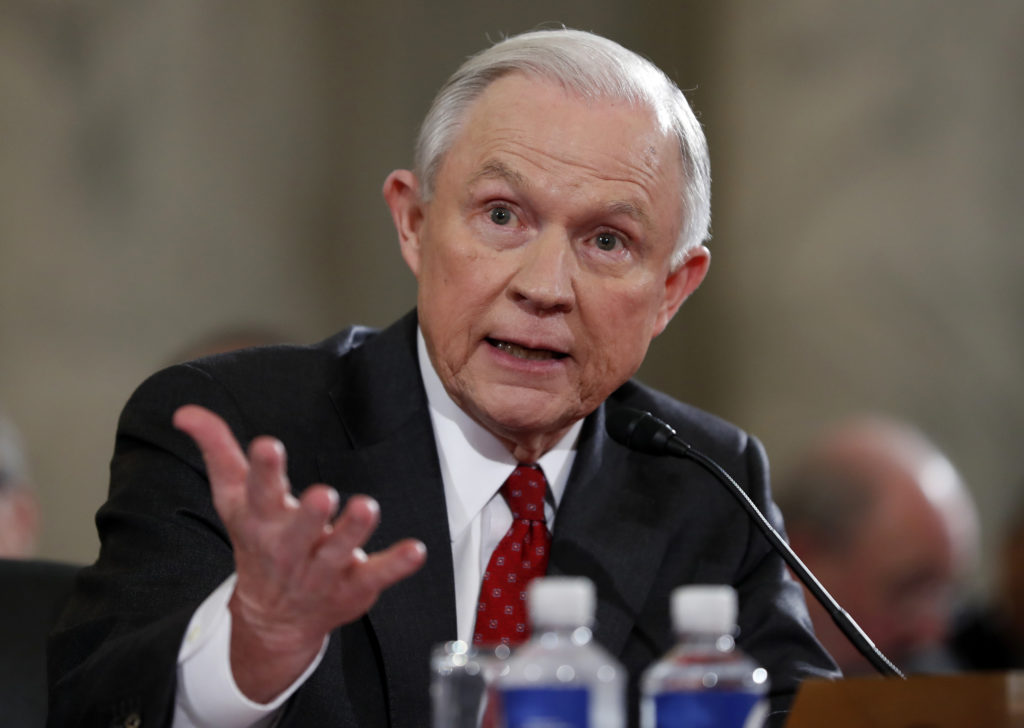
Attorney General Jeff Sessions signaled Thursday his strong support for the federal government’s continued use of private prisons, reversing an Obama administration directive to phase out their use. Stocks of major private prison companies rose at the news. Sessions issued a memo replacing one issued last August by Sally Yates, the deputy attorney general at the time. That memo directed the federal Bureau of Prisons to begin reducing and ultimately end its reliance on privately run prisons. It followed a Justice Department audit that said private facilities have more safety and security problems than government-run ones. Yates, in her announcement, said they were less necessary given declines in the overall federal prison population. But Sessions, in his memo, said Yates’ directive went against longstanding Justice Department policy and practice and “impaired the Bureau’s ability to meet the future needs of the federal correctional system.” He said he was directing the BOP to “return to its previous approach.” The federal prison population — now just under 190,000 — has been dropping due in part to changes in federal sentencing policies over the past three years. Private prisons hold about 22,100 of these inmates, or 12 percent of the total population, the Justice Department has said. The federal government started to rely on private prisons in the late 1990s because of overcrowding. Many of the federal prison inmates in private facilities are foreign nationals who are being held on immigration offenses. The Yates policy did not extend to prisons used by Immigration and Customs Enforcement, which hold tens of thousands of immigrants awaiting deportation. Immigration and human rights advocates have long complained about conditions in privately run prisons. An inspector general audit from last August said problems at private prisons in recent years included property damage, injuries and the death of a corrections officer. Republished with permission of The Associated Press.
House Speaker Paul Ryan gets firsthand look at US-Mexico border
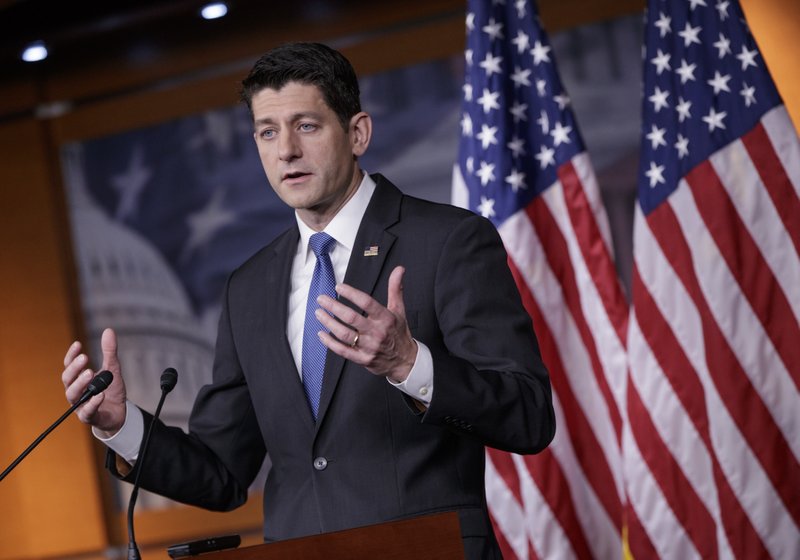
U.S. House Speaker Paul Ryan visited the Rio Grande valley on Wednesday for a firsthand look at the U.S.-Mexico border as the Trump administration steps up immigration enforcement and prepares to ask Congress to pay for a border wall. It was the first time the Wisconsin Republican had visited the border, and protesters gathered to meet his arrival in McAllen, Texas, with hand-painted signs protesting Trump policies. Ryan led a small group of fellow Republicans on the trip, including Rep. Michael McCaul of Texas, who chairs the Homeland Security Committee in the House. In McAllen, Ryan came face to face with some of the challenges that arise in building a wall along the entire 2,000-mile border, which includes much remote and inhospitable terrain as well as the Rio Grande, the river between Texas and Mexico. He met with local officials and toured the area by boat and helicopter, and even briefly rode on a horse. “When you see with your own eyes the many challenges facing our law enforcement professionals along the border, it gives you even greater respect for the work that they do day-in and day-out. But more tools and more support are needed for them to do their jobs effectively,” Ryan said in a statement after the visit. “Congress is committed to securing the border and enforcing our laws, and together with the Trump administration, we will get this done.” President Donald Trump has not yet formalized his request to Congress to pay for the wall he promised during his campaign. It’s expected to cost $15 billion or more, making it uncertain whether Congress would go along. Trump has promised Mexico will pay, but Mexico says it won’t, and Trump has never spelled out how that would happen, anyway. The administration is rolling out new policies to fight illegal immigration and subjecting millions of people who are in this country to deportation, even for minor infractions. A group called La Union del Pueblo Entero announced it was protesting Ryan’s visit “in order to show the opposition of border residents to the current presidential administration’s immigration and border policies.” According to The Monitor newspaper, protesters were asking to meet with Ryan, but he did not meet with them. Republished with permission of The Associated Press.
President Donald Trump says he’s torn over young immigrants
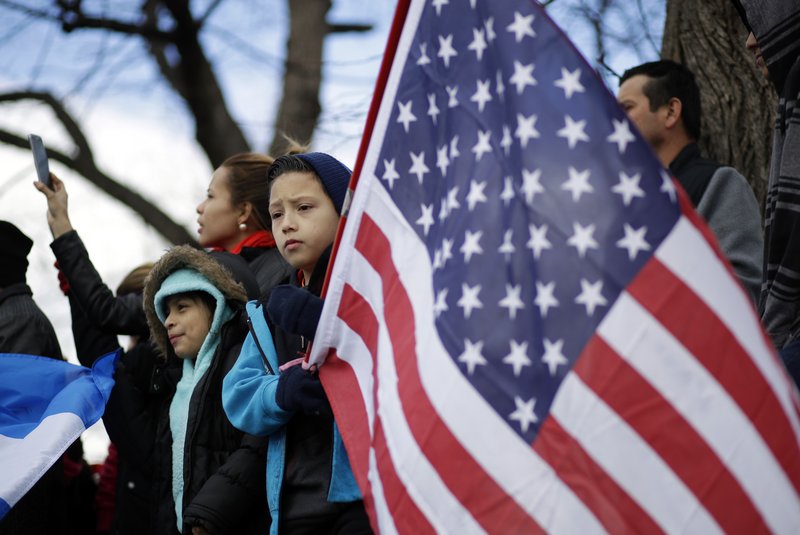
President Donald Trump spoke in unusually personal terms as he answered a question at a White House press conference about hundreds of thousands of young immigrants whose fate rests in his hands. “We’re going to show great heart. DACA is a very, very difficult subject for me, I will tell you. To me, it’s one of the most difficult subjects I have,” the president said Thursday in a rare admission of uncertainty. “Because you have these incredible kids, in many cases,” he said. Trump was referring to his predecessor’s Deferred Action for Childhood Arrivals program, which allows young people who were brought into the country illegally as children to stay and obtain work permits. The program has protected about 750,000 immigrants since its inception in 2012. Trump had promised during his campaign to “immediately terminate” what he’d deemed “President Obama’s two illegal executive amnesties.” But he has yet to move forward on the issue, despite pressure from immigration hard-liners, including Rep. Steve King of Iowa. While he had previously suggested those covered by the program would be safe from immediate deportation, the president has yet to say whether they will be allowed to continue living and working in a country that is the only many have known. On Thursday, Trump suggested he still has work to do to convince reluctant congressional leaders to get on board. “I have to deal with a lot of politicians, don’t forget. And I have to convince them that what I’m saying is, is right,” he said. But the president suggested that he’s been mulling a solution that goes beyond simply overturning DACA, as he had pledged. “You know, I love these kids. I love kids. I have kids and grandkids. And I find it very, very hard doing what the law says exactly to do,” he said. “And you know the law is rough. I’m not talking about new laws. I’m talking the existing law is very rough. It’s very, very rough.” Immigration lawyers, activists and those protected by the program have been waiting anxiously for any signs of what Trump might do since he took office last month. The issue returned to the headlines this week after a Seattle-area man participating in the program was detained by immigration agents. The U.S. Justice Department said Daniel Ramirez Medina, 23, admitted to having gang ties. But one of Ramirez’ lawyers, Mark Rosembaum, has said the allegations are false. Trump’s comments came as immigrants across the country were staying home from work and school as part of “A Day Without Immigrants” national protest. Many businesses have closed in solidarity to demonstrate the importance of immigrants to the American economy. Republished with permission of The Associated Press.
Donald Trump’s options for restoring travel ban
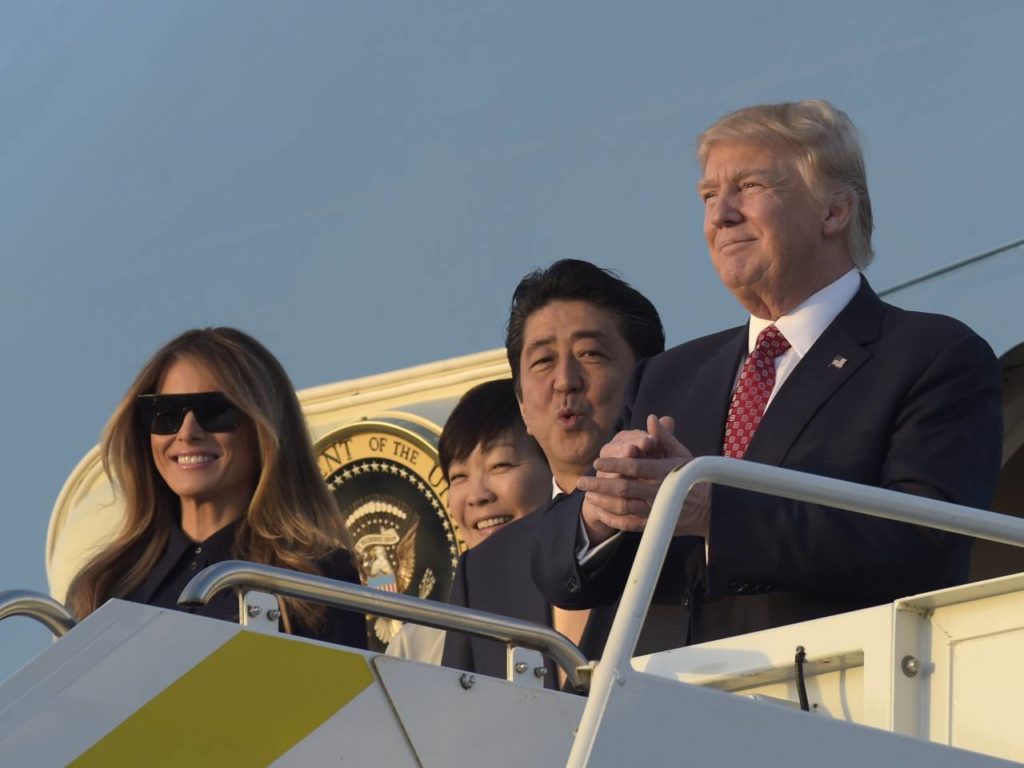
President Donald Trump has promised more legal action after a federal appeals court refused to reinstate his ban on travelers from seven predominantly Muslim nations. Trump tweeted “SEE YOU IN COURT” after the decision came out Thursday, but what he has in mind remains to be seen. Trump said Friday that he has “no doubt” he will win the case in court and told reporters he’s considering signing a “brand-new order” on immigration. The 3-0 ruling means that refugees and people from the seven nations — Iran, Iraq, Libya, Somalia, Sudan, Syria and Yemen — can continue entering the United States for now. The administration has several options on how to proceed. A look at where the legal fight goes from here. REHEARING AT THE APPEALS COURT The Trump administration could decide to ask the 9th U.S. Circuit Court of Appeals to reconsider the three-judge panel’s ruling. But the odds of success seem low, said Margo Schlanger, a law professor at the University of Michigan. She noted that the three-judge panel was unanimous and included a judge chosen by a Republican president. SUPREME COURT APPEAL The government could file an emergency appeal to the Supreme Court and ask the justices to restore the ban. But it would take at least five justices to overturn the ruling from the 9th U.S. Circuit Court of Appeals, and that may be a long shot. The high court still has only eight members since the death of Justice Antonin Scalia — four conservative and four liberal justices. “There are almost surely four votes to deny an emergency request to reinstate the order,” said Peter Spiro, a law professor at Temple University. The last immigration case to reach the justices ended in a 4-4 deadlock last year. That suggests a similar split over Trump’s order, which would let the 9th Circuit ruling stand and keep the freeze in place. WAITING FOR GORSUCH If the Supreme Court declines to intervene right away, the case would remain in the 9th Circuit and ultimately be considered on its legal merits. It also could return to U.S. District Judge James Robart in Seattle, who temporarily blocked the ban after Washington state and Minnesota urged a nationwide hold on the Jan. 27 order. The lower court action so far is temporary and hasn’t resolved broader questions about the legality of Trump’s order. It simply halts deportations or other actions until judges can more fully consider whether the order violates legal or constitutional rights. Allowing the case to play out longer at the appeals court has one advantage: By the time a ruling on the merits comes down, the Senate may have confirmed Judge Neil Gorsuch to the Supreme Court. That may improve Trump’s chances to prevail on appeal. But just how the issue might reach the Supreme Court isn’t clear. Several other challenges have been launched in courts around the country, and the court could opt to wait before stepping in. REVISING THE EXECUTIVE ORDER The White House could amend the executive order to expressly carve out existing green card holders and other people that already have some ties to the United States. Up to 60,000 visas were initially canceled in the wake of the ban, affecting the lives of students, professors and workers. White House counsel Donald McGahn had issued guidance days after the executive order saying it didn’t apply to legal permanent residents of the U.S., but the appeals court said that was not enough. “The government has offered no authority establishing that the White House counsel is empowered to issue an amended order superseding the executive order signed by the president,” the opinion said. Revising the order “shifts the legal boundaries so that it becomes a tougher constitutional target,” Spiro said. The appeals court issued a sharp rebuke to the Justice Department’s argument that the president has the constitutional power to restrict entry to the United States to prevent terrorism, and that courts cannot second-guess that authority. “There is no precedent to support this claimed unreviewability, which runs contrary to the fundamental structure of our constitutional democracy,” the opinion said. Washington state, Minnesota and other states say Trump showed his intent in the presidential campaign when he called for a ban on Muslims entering the country. They also say his order discriminates against Muslims because it provides exceptions for refugees who practice a religion that makes them a minority in their home country. That would favor Christians in the countries affected. The appeals court said the administration failed to show that the order satisfied constitutional requirements to provide notice or a hearing before restricting travel. But it did not rule on whether the order violated religious protections under the First Amendment. Justice Department lawyer Erez Reuveni told a Virginia judge hearing arguments in a similar case on Friday that the administration hasn’t decided what to do. Republished with permission of The Associated Press.
Fed lawyers deciding next step in Donald Trump travel ban fight
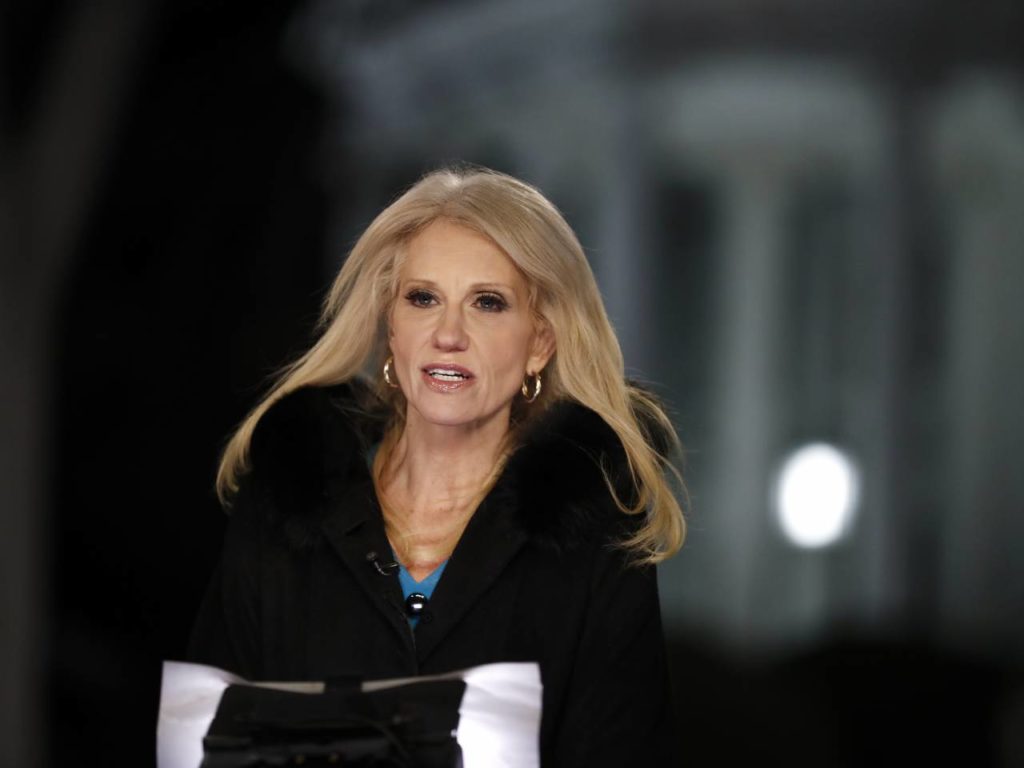
Government lawyers fighting to defend President Donald Trump‘s executive order on immigration said Friday that “all options” are being considered after a federal appeals court ruled against the president’s ban on travelers from seven predominantly Muslim nations. A Justice Department lawyer who spoke at a hearing in Virginia said the administration was weighing whether to challenge a 9th U.S. Circuit Court of Appeals ruling that upheld a temporary block on Trump’s ban, saying it was unlikely to survive a legal challenge. “We may appeal. We may not,” attorney Erez Reuveni said. “All options are being considered.” It could appeal the restraining order on Trump’s travel ban to the U.S. Supreme Court or it could attempt to remake the case in the district court. Reuveni was appearing at a hearing before Judge Leonie Brinkema at which the state of Virginia was challenging the ban. The judge did not rule. She noted that “the status quo remains” because of the 9th circuit’s decision and suggested that a well-reasoned ruling would take time and could not be written “overnight.” Michael Kelly, a spokesman for Virginia Attorney General Mark Herring, said Friday’s hearing in a federal court in a Washington, D.C., suburb posed the most significant state challenge yet to Trump’s order. In a statement, he said it “will be the most in-depth examination of the merits of the arguments against the ban.” Lawyers for Herring, a Democrat, are asking the judge for a preliminary injunction barring the Trump administration from enforcing that portion of the Jan. 27 executive order that bars anyone from those countries — Iran, Iraq, Libya, Somalia, Sudan, Syria and Yemen — from entering the U.S. for 90 days. The state is not challenging that portion of Trump’s order suspending entry of refugees for four months. “If the Commonwealth is successful in securing a preliminary injunction, it would indicate that Virginia is likely to prevail on the merits of its challenge to President Trump’s ban, and it will be a more durable injunction that will last all the way through trial — so potentially weeks or months,” Kelly wrote. In a court document filed ahead of the hearing, Virginia’s lawyers challenge the constitutionality of the executive order and say there is “overwhelming evidence” that the executive order “resulted from animus toward Muslims.” Virginia also says the state, its residents and its public universities are harmed. One example it gives: university students and faculty from countries named in the executive order who are in the U.S. on work or student visas can’t leave for fear of not being allowed back in. Until it was temporarily blocked by a federal judge in Seattle a week ago, the ban made headlines amid tearful stories of families separated and lives upended. Among them were two Yemeni brothers whose family sued in Virginia before the brothers, both green card holders, were allowed back into the country. The federal government has since said green card holders will not be barred from re-entering the U.S. In the specific Virginia challenge, lawyers for the federal government wrote in a court filing opposing a preliminary injunction that Virginia doesn’t have the right to challenge the ban — and that the court doesn’t have the power to review the president’s executive order. “Judicial second-guessing of the President’s determination that a temporary suspension of entry of certain classes of aliens was necessary at this time to protect national security would constitute an impermissible intrusion” on his constitutional authority, lawyers Dennis Barghaan and Reuveni wrote. Even if Virginia’s challenge is allowed to proceed, a preliminary injunction is not warranted, the U.S. government lawyers wrote. Republished with permission of The Associated Press.
Donald Trump nominee decried criticism of judges, senators agree
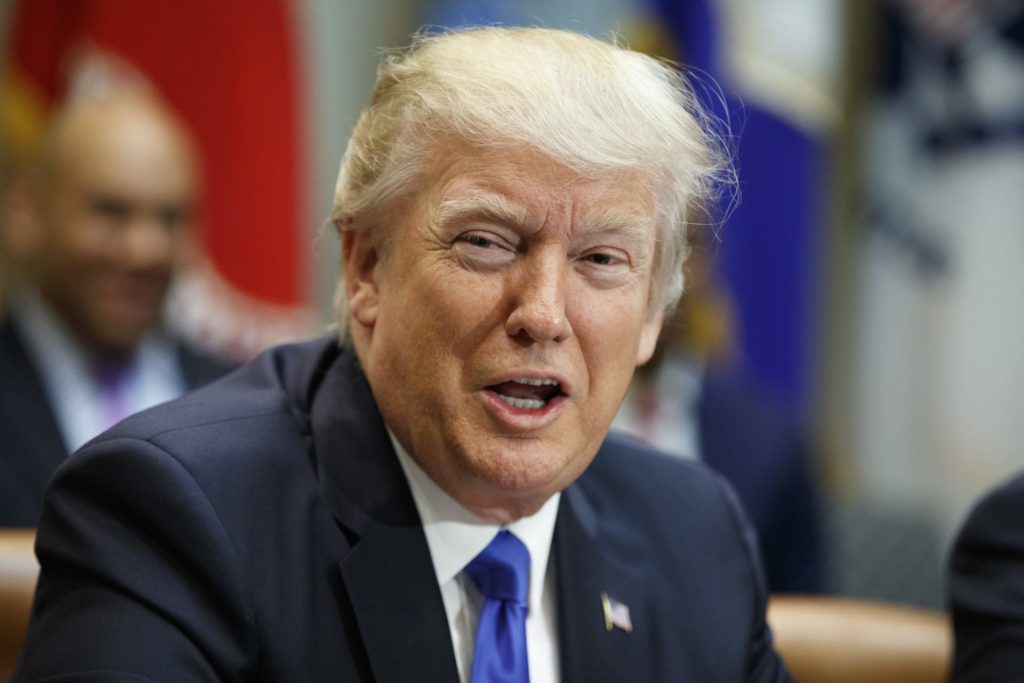
President Donald Trump insisted Thursday that comments by his Supreme Court nominee criticizing his own attacks on the judiciary were “misrepresented,” even as Republican and Democratic lawmakers vouched for the veracity of the remarks. Trump responded after private rebukes from Judge Neil Gorsuch, who said in meetings with lawmakers on Wednesday that the president’s comments about federal judges were “disheartening.” Gorsuch, who was nominated by Trump last week to the nation’s highest court, made the comments in meetings with senators after Trump accused an appeals court panel considering his immigration and refugee executive order of being “so political.” Over the weekend, he labeled a judge who ruled on his executive order a “so-called judge” and referred to the ruling as “ridiculous.” Democratic Sen. Richard Blumenthal of Connecticut first relayed Gorsuch’s remarks on Wednesday following a meeting with him. Trump’s own confirmation team for Gorsuch later confirmed he had made the remarks. But Trump said during a Thursday luncheon with senators that Blumenthal had misrepresented Gorsuch. “His comments were misrepresented. And what you should do is ask Senator Blumenthal about his Vietnam record that didn’t exist after years of saying it did,” he said. Blumenthal, who served in the Marine Corps Reserves during Vietnam, apologized in 2010 for saying he had served in Vietnam. The president made the comments while making the case for Gorsuch during a luncheon with 10 senators, including six of Blumenthal’s fellow Democrats. Blumenthal, a former state attorney general, argued Thursday that Gorsuch would need to go further to publicly denounce Trump’s verbal assault on judicial independence. “He needs to condemn Donald Trump’s attacks publicly and it needs to be much stronger, more explicit and direct than has been done so far,” Blumenthal said. “Unless it is done publicly in a clear condemnation, it will not establish his independence.” Lawmakers from both parties quickly vouched for the veracity of the remarks the senator said Gorsuch made. GOP former Sen. Kelly Ayotte, who is helping with Gorsuch’s confirmation and was at the meeting, issued a statement saying Gorsuch made clear he was not referring to any specific case. But she said the nominee said he finds any criticism of a judge’s integrity and independence to be “disheartening and demoralizing.” Senate Minority Leader Chuck Schumer, D-N.Y., and Sen. Ben Sasse, R-Neb., each confirmed that Gorsuch made the same comments to them. Sasse told MSNBC’s “Morning Joe,” ”Frankly, he got pretty passionate about it.” He added that Gorsuch said any attack on the “‘brothers or sisters of the robe is an attack on all judges’.” Fellow Connecticut Democratic Sen. Chris Murphy came to Blumenthal’s defense Thursday, lashing out in a tweet directed at Trump: “Ha! As a prosecutor, Dick used to put guys like u in jail. Now, u use your position to mock vets, he uses his to make their lives better.” Gorsuch’s comments came at the end of a week of meetings with members of the Senate, which is considering his nomination. His response may have been aimed at drawing a line of separation with the new president. The 9th U.S. Circuit Court of Appeals is weighing the appeal of Trump’s executive order on immigration, which included a temporary travel ban on people from seven Muslim-majority countries. In a hearing Tuesday, judges on the appeals court challenged the administration’s claim that the ban was motivated by terrorism fears, but they also questioned an attorney’s argument that it unconstitutionally targeted Muslims. Trump told visiting police chiefs Wednesday that a portion of the immigration law gives him the power to enact the ban, calling it “beautifully written” and saying, “A bad high school student would understand this.” “Courts seem to be so political and it would be so great for our justice system if they would be able to read a statement and do what’s right,” Trump added. “And that has to do with the security of our country, which is so important.” Since a lower-court judge blocked the order last week, Trump has assailed the decision, leading legal experts, Democrats and some Republicans to question whether his remarks might jeopardize the independence of the judiciary. Others have expressed fears he may be attempting to use political influence to sway the courts. The president has repeatedly said foreigners are “pouring in” since the ban was put on hold and suggested that blocking the order would be dangerous for U.S. citizens. On Wednesday he tweeted, “Big increase in traffic into our country from certain areas, while our people are far more vulnerable, as we wait for what should be EASY D!” The administration has not provided any information to support his claims. Republished with permission of The Associated Press.
Mike Rogers: Protecting America’s taxpayers by securing the border
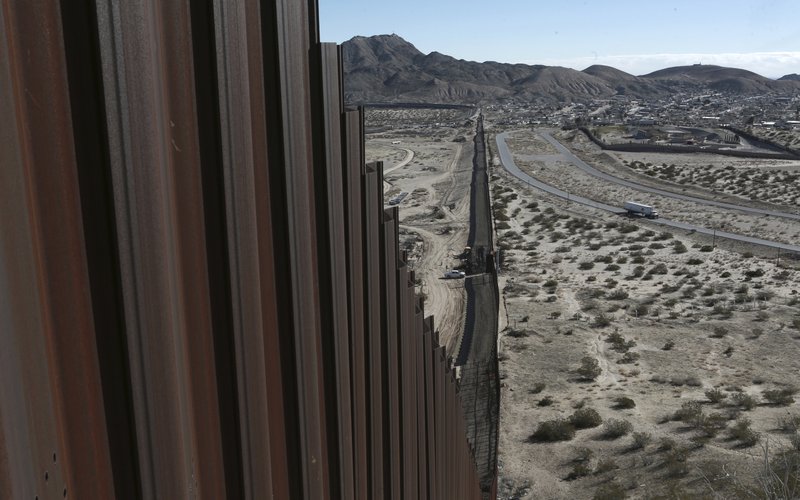
Most folks across East Alabama watched with excitement on January 25th as President Donald Trump signed an executive order to strengthen our country’s immigration laws. I, too, applauded our new president’s action to take seriously our nation’s immigration crisis. As a senior member of the House Homeland Security Committee, I have long been an advocate for protecting American taxpayers from the enormous costs of illegal immigration. President Trump’s action stated his intent to build a wall along our southern border. The Secure Fence Act of 2006 authorized the building of a fence along our southern border. I am proud to say that I was a cosponsor of that legislation then, and I remain a strong supporter of that law now. Though President Obama ignored this public law, we in the Congress will work with our new president to build the wall once and for all. Recently, in a House Homeland Security Committee hearing I was able to speak with Department of Homeland Security Secretary Kelly about our shared efforts. I believe border wall construction is a time-sensitive issue and should start as soon as possible. In order to jumpstart construction of the wall, I will sponsor a bill, the Border Security Funding Act of 2017, which will require illegal workers to pay a fee on money they send away to their home countries. This bill will also strengthen penalties for any country benefitting from illegal immigrant work in America. Thankfully, with Jeff Sessions becoming our Attorney General, we will finally have a strong supporter of the rule of law at the DOJ. By building a border wall and enforcing the laws on the books, American can start to reclaim its sovereignty. I am looking forward to working closely with the Trump administration to curb America’s illegal immigration problem. • • • Mike Rogers is a member of U.S. Congress representing Alabama’s 3rd Congressional District.
Court mulls travel ban: To compound whiplash, or calm it?
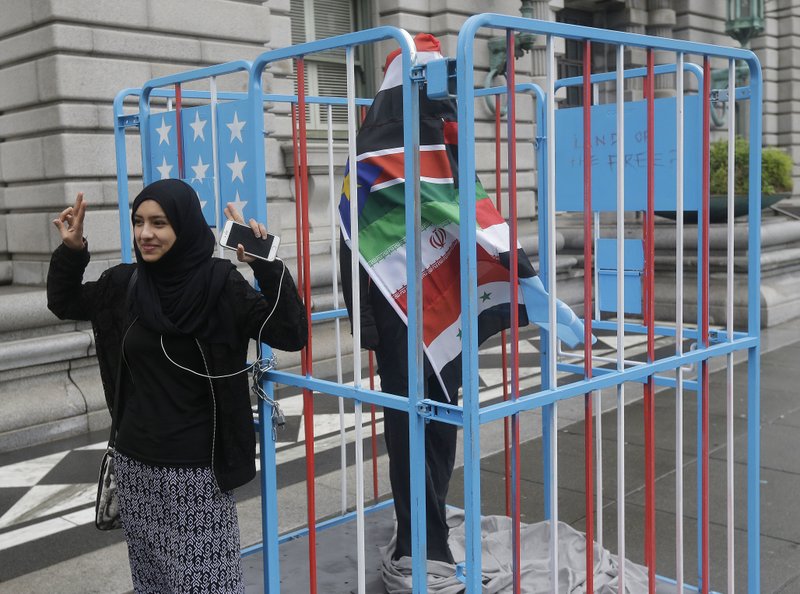
President Donald Trump‘s surprise executive order on immigration and a Seattle judge’s stunning decision to temporarily block it a week later have induced a national whiplash, riveting attention first on protests that filled airports around the country and then on Trump’s Twitter rants questioning the judge’s legitimacy. Whether the travel ban gets immediately reinstated is now up to the 9th U.S. Circuit Court of Appeals, where three judges heard arguments Tuesday . If they keep U.S. District Judge James Robart‘s order in place, the case could return to Robart, who would have more time to make a ruling on the merits of the case, based on fuller arguments and evidence. If they let the President go forward with his executive order, it could compound the whiplash: The travel ban would take effect once again pending a legal challenge by Washington state and Minnesota, even though the courts might wind up striking it down later. A decision has been promised within days. ___ WHAT WAS THE UPSHOT OF TUESDAY’S HEARING? Trying to divine how a court might rule from the questioning can be a fool’s errand, but some legal scholars who were willing to try anyway said Washington state appeared to make enough of a case to keep Trump’s travel ban on ice, at least for now. Tuesday’s arguments between Justice Department attorney August Flentje and Washington state Solicitor General Noah Purcell were conducted by phone, due to the emergent nature of the hastily arranged hearing. The record audience that tuned in for the live-stream on the court’s website heard each lawyer getting grilled. The judges repeatedly asked Flentje whether the government had any evidence that the travel ban was necessary, or that keeping it on hold would harm national security. They expressed skepticism over his argument that the states don’t have standing to sue, and over his assertion that the courts have little to no role in reviewing the president’s determinations concerning national security. Purcell faced tough questioning from Judge Richard Clifton, who said he wasn’t necessarily buying the states’ argument that the ban was motivated by religious discrimination, given that the vast majority of Muslims live in countries that aren’t targeted by the ban. “I certainly thought the government’s case came across as weaker,” Stephen Vladeck, a professor at the University of Texas School of Law, wrote in an email, citing “the government’s seeming inability to provide concrete evidence of why immigration from those countries threatens national security.” ___ DISCRIMINATION OR NOT? After being repeatedly asked, Flentje acknowledged that individuals could have standing to sue if the president tried to enforce an all-out ban on Muslims entering the U.S. But, he said, that’s not all what’s happening here. Basing the order on travel from certain countries that have been linked to terrorism — whatever their religion — is a perfectly legitimate exercise of the president’s authority over national security, he argued. Purcell argued that it’s remarkable to have this much evidence of discriminatory intent this early in the case — including Trump’s campaign statements about a Muslim ban and adviser Rudy Giuliani‘s interview comments that he was asked to help devise a legal version of the Muslim ban. “There are statements that we’ve quoted in our complaint that are rather shocking evidence of intent to discriminate against Muslims, given that we haven’t even had any discovery yet to find out what else might have been said in private,” Purcell said. Even if Trump’s executive order itself doesn’t single out Muslims, the order is unconstitutionally discriminatory if it was adopted with such intent, Purcell said. Judge Michelle Friedland asked Flentje persistent questions about such evidence. “It is extraordinary for the court to enjoin the president’s national security determination based on some newspaper articles, and that’s what has happened here,” Flentje responded. That drew an incredulous response from Clifton: “Do you deny those statements were made?” Flentje conceded they were, and Clifton said in that case it was appropriate to consider them. ___ WHAT ARE THE COURT’S OPTIONS? In addition to simply leaving Robart’s temporary restraining order in place or striking it down, the DOJ said the appeals court could narrow its scope, which it called over-broad. Flentje suggested it could be limited to allow the president to ban travelers who don’t already have relationships with the United States, while allowing legal permanent residents, for example, to return to the U.S. from the seven countries. In questioning Purcell, Clifton followed up on that. “Why shouldn’t we limit the order, the temporary restraining order’s reach to those people who you’ve got a strong case for, like the LPRs?” he asked. Purcell said that wouldn’t work. The government hasn’t shown that it could engineer a way to apply the ban so selectively, and even if it could, the rights of U.S. citizens who want to have family members come visit them from the listed countries would still be harmed, he said. Judge William Canby noted that Washington’s state universities might want to invite some foreign scholars to visit — and that those scholars might have no current connection to the U.S. In that case, the rights of the schools might be compromised. Further, the travel ban would still violate the separation of church and state, because it’s grounded in religious discrimination, and that’s something that affects all residents of the states, Purcell said. However the judges rule, the case is likely to wind up at the Supreme Court. Its route there is the main question. Republished with permission of The Associated Press.
State, federal lawyers in court to argue Donald Trump travel ban
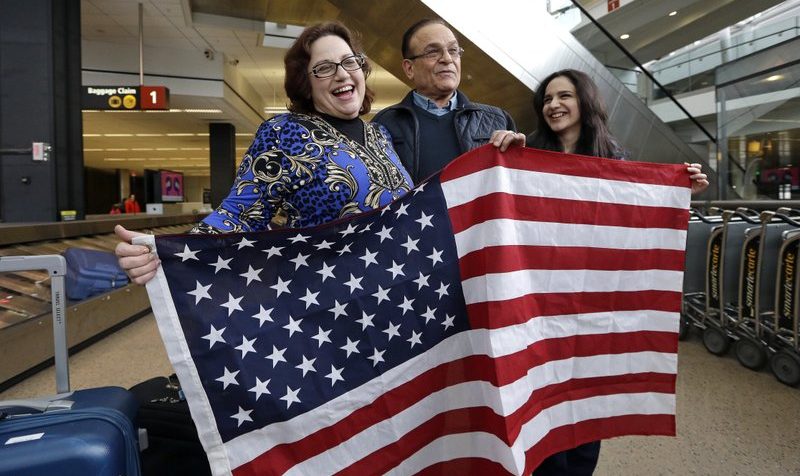
State and federal lawyers will argue before a panel of federal appellate court judges Tuesday in the pitched fight over President Donald Trump‘s travel and refugee ban that could reach the Supreme Court. The legal dispute involves two divergent views of the role of the executive branch and the court system. The federal government maintains the president alone has the power to decide who can enter or stay in the United States, while states suing Trump say his executive order is unconstitutional. Seattle U.S. District Judge James Robart, who on Friday temporarily blocked Trump’s order, has said a judge’s job is to ensure that an action taken by the government “comports with our country’s laws.” The Justice Department filed a new defense of Trump’s ban on travelers from seven predominantly Muslim nations as a federal appeals court weighs whether to restore the administration’s executive order. The lawyers said Monday the travel ban was a “lawful exercise” of the president’s authority to protect national security and said Robart’s order that put the policy on hold should be overruled. The filing with the San Francisco-based 9th U.S. Circuit Court of Appeals was the latest salvo in a high-stakes legal fight surrounding Trump’s order. Washington state, Minnesota and other states say the appellate court should allow a temporary restraining order blocking the travel ban to stand as their lawsuit moves through the legal system. The judges hearing the arguments — two Democrat-appointed judges and one Republican appointee — are from a randomly assigned panel. The appeals court over the weekend refused to immediately reinstate the ban, and lawyers for Washington and Minnesota argued anew on Monday that any resumption would “unleash chaos again,” separating families and stranding university students. The Justice Department responded that the president has clear authority to “suspend the entry of any class of aliens” to the U.S. in the name of national security. It said the travel ban, which temporarily suspends the country’s refugee program and immigration from seven countries with terrorism concerns, was intended “to permit an orderly review and revision of screening procedures to ensure that adequate standards are in place to protect against terrorist attacks.” The challengers of the ban were asking “courts to take the extraordinary step of second-guessing a formal national security judgment made by the president himself pursuant to broad grants of statutory authority,” the Justice Department wrote. The Seattle judge’s ruling triggered a Twitter rant by the president. On Sunday, Trump tweeted, “Just cannot believe a judge would put our country in such peril. If something happens blame him and court system. People pouring in. Bad!” Whatever the appeals court decides, either side could ask the Supreme Court to intervene. It could prove difficult, though, to find the necessary five votes at the high court to undo a lower court order; the Supreme Court has been at less than full strength since Justice Antonin Scalia‘s death a year ago. The last immigration case that reached the justices ended in a 4-4 tie. How and when a case might get to the Supreme Court is unclear. The travel ban itself is to expire in 90 days, meaning it could run its course before a higher court takes up the issue. Or the administration could change it in any number of ways that would keep the issue alive. After Robart’s ruling, the State Department quickly said people from the seven countries — Iran, Iraq, Libya, Somalia, Sudan, Syria and Yemen — could travel to the U.S. if they had valid visas. On Monday, a graduate student who had traveled to Libya with her 1-year-old son to visit her sick mother and attend her father’s funeral was back in Fort Collins, Colorado, after having been stopped in Jordan on her return trip. She was welcomed with flowers and balloons by her husband and other children. Syrian immigrant Mathyo Asali said he thought his life was “ruined” when he landed at Philadelphia International Airport on Jan. 28 only to be denied entry to the United States. Asali, who returned to Damascus, said he figured he’d be inducted into the Syrian military. He was back on U.S. soil Monday. “It’s really nice to know that there’s a lot of people supporting us,” Asali told Gov. Tom Wolf, who greeted the family at a relative’s house in Allentown. States challenging the ban have been joined by technology companies, who have said it makes it more difficult to recruit employees. National security officials under President Barack Obama have also come out against it. Republished with permission of the Associated Press.


